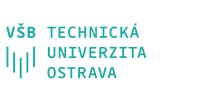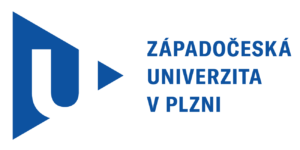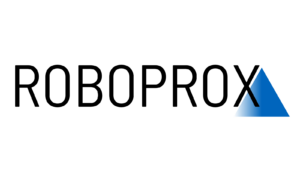| Název projektu: | Robotika a pokročilá průmyslová výroba |
| Akronym: | ROBOPROX |
| Webové stránky: | roboprox.eu |
| Reg. číslo: | CZ.02.01.01/00/22_008/0004590 |
| Poskytovatel dotace: | Ministerstvo školství, mládeže a tělovýchovy (MŠMT) |
| Program: | Operační program Jan Amos Komenský (OP JAK) Priorita 1 – 1.1 Rozvoj a posilování výzkumných a inovačních kapacit a zavádění pokročilých technologií |
| Výzva: | Výzva č. 02_22_008 Špičkový výzkum |
| Doba trvání: | 06/2023 – 06/2028 |
| Rozpočet: | 467,9 mil. Kč |
| Hlavní řešitel: | prof. Dr. Ing. Zdeněk Hanzálek |
| Koordinátor: | |
| Partneři: |    |
| Média a tiskové zprávy: | 6.12.2023: Rozhovor s prof. Hanzálkem v HN 8.2.2024: ČVUT získává projekt pro 180 špičkových výzkumníků v robotice a pokročilé průmyslové výrobě |
Projekt ROBOPROX se zaměřuje na průlomový výzkum a vývoj v oblasti robotiky a pokročilé průmyslové výroby využitím flexibilního nasazení robotů s vysokou mírou autonomie, bezpečné spolupráce s lidmi, řízení a optimalizace výrobních procesů a výpočetních metod pro výrobu a materiálové inženýrství. Špičkový výzkum v této oblasti umožní vývoj komplexnějších, modulárních a pokročilých řešení, a pomůže zvýšit konkurenceschopnost českého průmyslu. Projekt je interdisciplinární a podporuje pružné vývojové postupy, které umožňují vyhovět měnícím se požadavkům zákazníků a respektovat rostoucí environmentální omezení.
Čtěte dále:
| WP1: Řízení a optimalizace systémů, materiálů a výroby | WP2: Robotika a výpočetní metody pro výrobu | Volná místa |
CÍLE PROJEKTU
Cílem projektu ROBOPROX je vytvořit základnu pro růst nejmodernějšího výzkumu v oblasti robotiky a průmyslové výroby podporou špičkových výzkumných týmů v této oblasti, rozšířením současných znalostí, tvorbou originálních příspěvků, posílením studijních plánů partnerů projektu a využitím národní a mezinárodní spolupráce a excelentního výzkumu. ROBOPROX se zaměří na excelentní, mezinárodně konkurenceschopný interdisciplinární výzkum v oblasti robotiky zahrnující komplexní robotické systémy, autonomní robotiku, spolupráci člověka a stroje, návrh a řízení modulárních systémů, konstrukcí a materiálů, rozvrhování, optimalizaci a rozhodování a další oblasti výzkumu s cílem transformovat české a evropské podniky tak, aby poskytovaly flexibilnější, komplexnější, konkurenceschopnější a udržitelnou průmyslovou výrobu. Mezioborové aktivity projektu ROBOPROX umožní nové vědecké objevy, které budou mít silný dopad na evropskou ekonomiku a společnost.
- Provádění hlavních výzkumných činností v rámci dvou výzkumných záměrů (WP)
- Posílení vědecko-výzkumných kapacit zřízením a rozvojem špičkových výzkumných týmů v oblasti robotiky a pokročilé průmyslové výroby
- Navázání nové mezinárodní spolupráce a posílení mezinárodní spolupráce výzkumných týmů ROBOPROX
- Pořízení přístrojového a infrastrukturního vybavení nezbytného pro realizaci výzkumných projektů
- Podpoření mobility výzkumných pracovníků
VÝZKUMNÉ OBLASTI A ZÁMĚRY
WP1: Řízení a optimalizace systémů, materiálů a výroby
Výzkumný záměr sdružuje odborníky na automatické řízení, optimalizaci a materiálové inženýrství a nabízí tak jedinečnou příležitost pro mezioborovou spolupráci v těchto oblastech. Je zaměřen na zásadní pokrok v metodách a jejich teoriích a na rychlý přenos výsledků do praxe.
Vedoucí: Ing. Milan Korda, Ph.D.
Výzkumné oblasti (RA) / výzkumné cíle (RO)
RA1 Řízení systémů s distribuovanými parametry a složitých robotických struktur (Tomáš Vyhlídal)
RA1 bude vyvíjet nástroje pro návrh řízení komplexních systémů, včetně systémů s distribuovanými parametry a časově proměnných systémů, a implementovat je do průmyslově použitelných regulátorů a estimátorů s nízkým řádem. Metody budou aplikovány na současné řízení pohybu a potlačení vibrací robotických struktur s aplikacemi v (mikro)obrábění a aditivní výrobě s využitím laserů.
- Optimální řízení složitých, vzájemně propojených, systémů se zpožděním (Tomáš Vyhlídal, Zbyněk Šika)
- Rozšíření metody eliminace interakcí (Vladimír Kučera, Tomáš Vyhlídal)
- Řízení a potlačení vibrací lehkých robotických struktur (Zbyněk Šika, Tomáš Vyhlídal)
- Algoritmy pro průmyslové řízení (Miloš Schlegel – ZČU, O. Straka)
- Odhadování a filtrace (Jakub Dokoupil – VUT)
- Pokročilá výroba (Pavel Zeman).
RA2: Řízení modulárních systémů, struktur a materiálů (Michael Šebek)
RA2 vyvine nové metody automatického řízení založené na matematických modelech a datech pro modulární systémy, struktury a materiály. Hlavní důraz bude kladen na využití znalostí struktury propojení coby klíčového kroku pro škálovatelné modelování, simulaci a analýzu s cílem navrhnout a implementovat centralizované, distribuované a kolaborativní řízení. Cílem jsou přitom úlohy zahrnují koordinaci více sestavujících strojů a robotů a úlohy samoskládání.
- Metodika pro kolaborativní sestavování modulárních struktur (Kristian Hengster-Movric, Jiří Zemánek)
- Metodika řízení sestavených modulárních struktur (Zdeněk Hurák, Michael Šebek, Jiří Zemánek)
RA3: Konvexní relaxace pro nekonvexní úlohy v materiálech a průmyslovém návrhu (Didier Henrion)
RA3 je teoretickou oporou výzkumného záměru, která přinese metody pro řešení nelineárních a nekonvexních optimalizačních problémů z oblasti materiálového inženýrství prostřednictvím hierarchie konvexních relaxací. Tohoto cíle bude dosaženo zaručením konvergence této hierarchie a zajištěním její škálovatelnosti na problémy průmyslového významu s využitím struktury (řídkosti, symetrie), která je těmto úlohám vlastní.
- Absence relaxační mezery v hierarchii moment-SOS (Didier Henrion, Milan Korda, Martin Kružík)
- Lepší škálovatelnost hierarchie moment-SOS (Didier Henrion, Milan Korda, Jean Bernard Lasserre, Martin Kružík)
RA4: Počítačově podporovaný návrh, simulace a výroba modulárních materiálů (Jan Zeman)
RA4 se zaměřuje na modularitu jako základní předpoklad pro distribuovanou výrobu masově přizpůsobených výrobků. Jelikož je výpočetní návrh modulárních materiálů a konstrukcí s vnitřní funkční architekturou teprve v počátcích, budou vyvinuty nové, teoreticky podložené algoritmy a nástroje, které umožní využít modularitu při simulaci, optimalizaci a automatizované výrobě.
- Simulace (Milan Jirásek, Jan Zeman)
- Optimální návrh (Michal Kočvara, Jan Zeman)
- Výroba a validace (Jan Novák, Václav Nežerka)
RA5: Automatizace pro povrchové inženýrství nanomateriálů (Tomáš Polcar)
RA5 má za cíl uspořit energii a snížit náklady v materiálovém inženýrství. Toho bude dosaženo automatizovaným tribologickým testováním, které urychlí vývoj nových materiálů s velmi nízkým třením; přesnou manipulací s 2D materiály, což otevře cestu k průmyslovému využití pevných supermaziv; a magnetronovým naprašováním pomocí robotického ramene pro lokální nanášení tenkých vrstev na rozměrné objekty, což sníží výrobní čas a spotřebu materiálu.
-
- Robotické magnetronové naprašování (Tomáš Polcar)
- Automatizovaná tribologie v nanoměřítku (Tomáš Polcar, Antonio Cammarata)
- Návrh a manipulace s 2D materiály (Tomáš Polcar, Antonio Cammarata)
WP2: Robotika a výpočetní metody pro výrobu
Kombinovaný výzkum v oblasti robotiky a pokročilých průmyslových výrobních systémů. Cílem je zásadně přispět k pokroku v oblastech diskrétní optimalizace, strojového učení, rozhodování a verifikace, a efektivně přenést tyto výsledky do průmyslové praxe.
Vedoucí: prof. Dr. Ing. Robert Babuška
Výzkumné oblasti (RA) a výzkumné cíle
RA6 Pokročilá autonomie robotů (Libor Přeučil)
RA6 se zaměřuje na vizuální navigaci autonomních robotů ve slabě kontrolovaných prostředích a prostředích bez dedikované navigační infrastruktury. Výzkum povede ke zvýšení robustnosti navigace robotů, k novým postupům jejího samostatného obnovení po selhání za provozu a tedy schopnosti robotu zvládat situace s vysokou nejistotou, změnami tvaru a struktury prostředí a pracovat za přítomnosti člověka.
-
-
- Modelování a správa pracovního prostoru robotu; robot pracující s nejistou informací (Karel Košnar)
- Navigace založená na percepci vlastností pracovního prostoru (Libor Přeučil)
- Dlouhodobá autonomie, detekce a obnova po poruše (Miroslav Kulich)
-
RA7 Spolupráce člověka se strojem (Robert Babuška)
RA7 má za cíl udělat z robotů plnohodnotné spolupracovníky člověka. V současné době nejsou kolaborativní roboty flexibilní, efektivní, ani opakovatelně použitelné. K překonání těchto problémů přispějeme vytvořením modulární architektury a znalostní báze a dále vývojem nových metod pro reprezentaci demonstrovaných dovedností či rozvržení úloh mezi člověka a roboty s využitím různých stupňů autonomního chování. Navržený systém bude rovněž obsahovat moduly pro interaktivní multimodální komunikaci mezi člověkem a strojem.
-
-
- Modulární znalostní architektura pro spolupráci člověka s robotem (Karla Štěpánová, Rado Škoviera)
- Interaktivní specifikace dovedností a úloh, učení (Robert Babuška, Jan Zahálka, Jiří Kubalík)
- Plánování, rozvrhování a provádění úloh v pracovním prostoru HRC (Jan Kristof Behrens)
- Interaktivní vnímání (Václav Hlaváč, Rado Škoviera)
- Aplikace na robotický systém pro detekci radiace (Karel Smolek)
-
RA8 Kooperativní vzdušné roboty pro pokročilou průmyslovou výrobu (Martin Saska)
RA8 se zaměřuje na autonomii spolupracující skupiny více robotů v průmyslové výrobě. Kooperativní vzdušné roboty (UAV) mohou v budoucnu významně zlepšit průmyslovou výrobu, např. dodáváním komponent uvnitř i vně průmyslových zařízení. V současné době je nasazení týmů UAV omezeno kvalitou lokalizace a mapování, rychlostí letu a také efektivitou rozdělování úkolů mezi jednotlivé roboty. Proto budou navrženy nové techniky mapování a lokalizace více robotů, plánování pohybu pro agilní let UAV v neznámém dynamickém prostředí a také metody na plánování misí pro efektivní nasazení týmů robotů.
-
-
- Topologické multimodální mapování a kooperativní lokalizace (Martin Saska)
- Plánování trajektorií a misí pro agilní let více robotů (Vojtěch Vonásek)
-
RA9 Dlouhodobě odolné stroje prostřednictvím nepřetržitého učení a senzorického vnímání (Tomáš Svoboda)
RA9 zkoumá nové metody strojového učení pro zvýšení flexibility průmyslového nasazení robotů. Soustředí se na slabě dozorované metody a samoučící postupy bez učitele. Výzkum reaguje na současnou nežádoucí potřebu velkého množství ručně označených dat. Druhá část se zaměří na výzkum paralelně běžících distribuovaných řídicích smyček podpořený novými postupy v senzorice, kde senzory pokrývají významnou část robotického povrchu. Nové metody podpoří schopnost adaptace robotických systémů na dynamicky se měnící pracovní podmínky i změny hardwaru, například na nový typ senzorů.
-
-
- End-to-end učení s vysvětlitelností (Karel Zimmermann, Tomáš Svoboda)
- Všestranné a robustní roboty díky distribuovanému reaktivnímu řízení a hmatovému vnímání z celého povrchu robotu (Matěj Hoffmann)
-
RA10 Robotické směrování v dynamickém, průmyslovém prostředí s možným výskytem osob (Jan Fajgl)
RA10 zvýší efektivitu a produktivitu vnitropodnikové logistiky a zemědělství prostřednictvím rozhodování založeného na plánování s delším horizontem a samostatně se zlepšujících autonomních systémech. Důraz je kladen na řešení kombinatorických sekvenčních úloh společně se spojitou optimalizací zohledňující pohybová omezení robotů. RA10 se zaměřuje na záruky kvality řešení s praktickou použitelností v reálném nasazení a zobecnění metod na dynamické problémy, kde výkonnost systému může těžit z pochopení dlouhodobé dynamiky a online rozhodování s uvažováním delšího časového horizontu.
-
-
- Řešiče robotických úloh plánování s více cíli poskytující odhad kvality nalezených řešení (Jan Fajgl, Miroslav Kulich)
- Plánování sběru dat s uvažováním časoprostorových jevů (Tomáš Krajník, Jan Fajgl)
-
RA11 Rozvrhování, diskrétní optimalizace a rozhodování (Zdeněk Hanzálek)
RA11 se zaměřuje na vysoce výkonné algoritmy využívající teorii grafů, (meta)heuristiky, matematické programování, programování s omezujícími podmínkami, automatizované plánování a strojové učení. Pozornost bude věnována novým rozšířeným problémům plánování výroby, balení do zásobníků, uvažování nad spotřebou energie, rozvrhování průmyslové komunikace a dlouhodobému autonomnímu rozhodování. Budou zvažovány přístupy založené na modelech i na datech, které řeší praktické problémy, jako je narušení dodavatelského řetězce, nedostupnost personálu a nejistota parametrů.
-
-
- Vysoce výkonné algoritmy pro nová rozšíření problémů rozvrhování výroby (Zdeněk Hanzálek, Přemysl Šůcha, Mohammad Rohaninejad)
- Nejistota a strojové učení v diskrétní optimalizaci (Zdeněk Hanzálek, Přemysl Šůcha, Antonín Novák)
- Efektivní rozhodování pro dlouhodobou autonomii (Lukáš Chrpa)
- Aplikace metaheuristických metod pro rozsáhlá vysokorozměrná data (Václav Snášel – VŠB-TUO, Jana Nowaková – VŠB-TUO)
- Optimalizace spotřeby a výroby energie (Přemysl Šůcha, Zdeněk Hanzálek)
-
RA12 Škálovatelné formální metody v robotice a výrobě (Mikoláš Janota)
RA12 rozvíjí formální metody pro škálovatelnou analýzu a zlepšování softwaru používaného v robotice a výrobě obecně. Škálovatelnost bude řešena zejména z hlediska statické analýzy kódu, automatického uvažování a teoretické analýzy. RA12 se zaměří na vývoj nových přístupů v symbolickém provádění a optimalizaci kódu, podporovaných nástroji pro uvažování, které se automaticky přizpůsobují a zlepšují na základě předchozích zkušeností. Konkrétní průmyslové problémy budou řešeny teoreticky především za použití metod z oboru parametrizované složitosti.
-
-
- Škálovatelné symbolické provádění ohraničené ověřování modelu (Christoph Kirsch, Jan Vitek)
- Automatické uvažování pro průmyslové aplikace (Mikoláš Janota)
- Dokazovaní nad konfigurovatelnými systémy (Mikoláš Janota)
- Grafy, parametry a optimalizace pro agenty (Dušan Knop)
-
RA13 Komplexní systémy pro flexibilní výrobu (Vladimír Mařík)
RA13 vyvíjí metody modelování, navrhování a řízení výrobních systémů, které umožňují pružně reagovat na měnící se požadavky na výrobu prostřednictvím snadné rekonfigurace. V rámci RA13 se budou zkoumat metody modelování s využitím více agentů pro zachycení chování složitých výrobních systémů a metody znalostního inženýrství, přičemž se bude usilovat o naplnění vize zapoj a vyráběj. Budou použity přenositelné metody strojového učení s cílem snížit požadavky na tréninková data pro systémy řízení kvality výroby.
-
-
- Pokročilé modely komplexní výroby (Miroslav Svítek)
- Modularizace výroby (Petr Kadera)
- Kontrola kvality v pružné výrobě (Martin Macaš)
- Výrobky, výrobní systém a zařízení (Václav Jirkovský)
-
![]()


